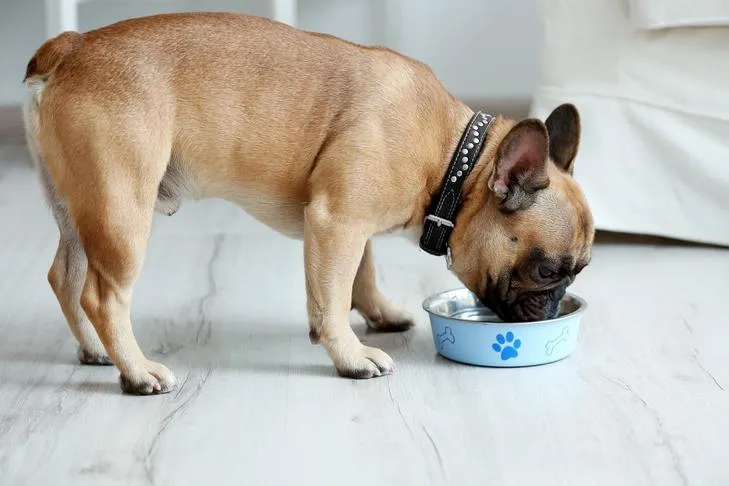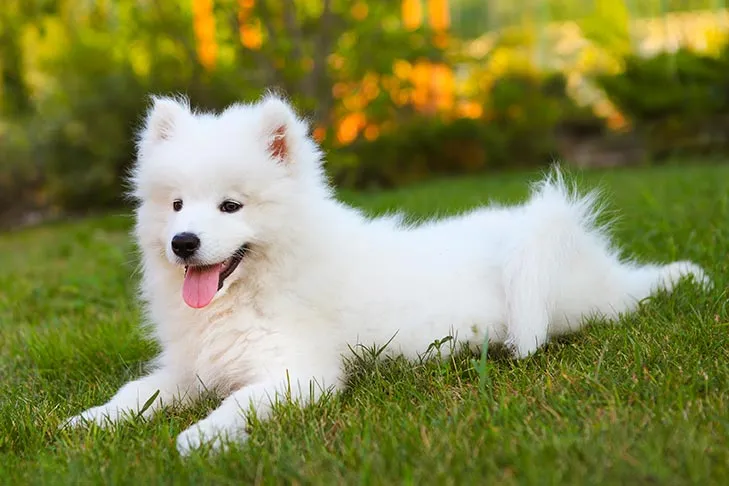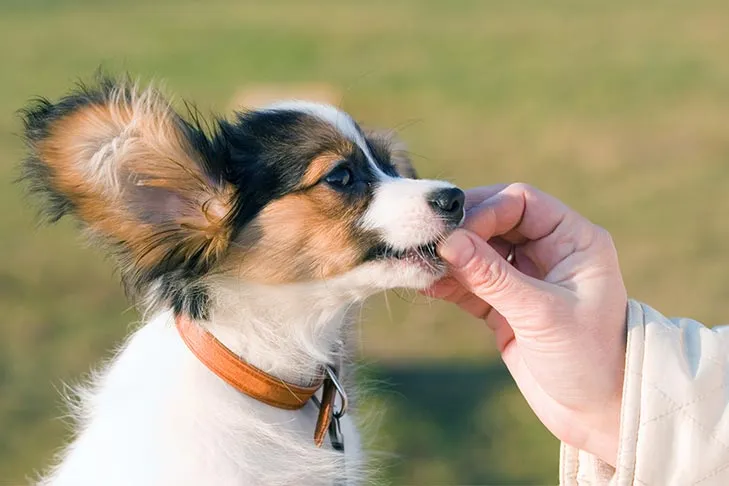As loving pet parents, we constantly wonder about the best ways to care for our canine companions, especially when it comes to their diet. With so many human foods around, it’s natural to question which ones are safe to share and which should be strictly off-limits. Understanding what your dog can and cannot eat is crucial for their health and well-being, preventing potential emergencies and ensuring they receive proper nutrition. This comprehensive guide from Dog Care Story will help you navigate the complexities of your dog’s diet, offering clear insights into common human foods and their suitability for your furry friend. If you’re looking for more detailed information on what human food can dogs eat safely, this article provides valuable context for making informed choices.
It’s tempting to share a bite from your plate with those pleading puppy eyes, but not all human foods are created equal when it comes to canine consumption. While some can offer beneficial nutrients, others can be toxic, causing mild discomfort or even severe health issues. Always remember that a dog’s digestive system differs from ours, and what’s good for humans isn’t always good for dogs. Always consult your veterinarian if you have specific concerns about your dog’s diet or if they accidentally ingest something questionable.
Human Foods Dogs Can Safely Enjoy (In Moderation)
Many everyday human foods can be safe and even beneficial for dogs when given in appropriate quantities and prepared correctly. Here’s a look at some popular options, focusing on moderation and proper preparation to ensure your dog’s health and safety.
Bread
Small amounts of plain bread, free from spices, nuts, or raisins, can be given to your dog without causing immediate harm. However, it’s important to remember that bread offers minimal nutritional value for dogs and is high in carbohydrates and calories, similar to its effect on humans. While homemade bread is generally a better option than store-bought varieties that often contain unnecessary preservatives, it should only be offered sparingly as an occasional treat rather than a regular part of their diet.
Cashews
Cashews can be a safe treat for dogs, but strict moderation is key, and they must always be unsalted. These nuts provide beneficial nutrients such as calcium, magnesium, antioxidants, and protein. However, despite being relatively lower in fat compared to some other nuts, excessive consumption can still lead to weight gain and digestive upset. A small handful of unsalted cashews can serve as a nice occasional reward.
Cheese
Most dogs can enjoy cheese in small to moderate amounts, making it a popular and palatable treat that can even be useful for administering medication. As long as your dog isn’t lactose intolerant—a rare but possible condition—cheese can be a good source of protein and calcium. It’s advisable to opt for lower-fat varieties like cottage cheese or mozzarella to prevent excessive fat intake. Many dog-specific chews are also made from dried cheese, providing a safe and enjoyable option.
 An American Bulldog rests its head on a kitchen table, looking intently at a piece of cheese.
An American Bulldog rests its head on a kitchen table, looking intently at a piece of cheese.
Coconut
Coconut, with its unique properties, can be beneficial for dogs. It contains lauric acid, known for its antibacterial and antiviral properties, which may aid in combating certain infections. Coconut can also help address issues like bad breath and certain skin conditions such as hot spots, flea allergies, and general itchy skin, promoting a healthier coat. Both coconut milk and coconut oil are generally considered safe for canine consumption. When offering fresh coconut, always ensure the fibrous outer shell is completely removed to prevent choking hazards or potential intestinal blockages from indigestible parts.
Corn
Corn is a widely used ingredient in many commercial dog foods, attesting to its general safety for canines. It provides carbohydrates for energy and some fiber. However, the corn cob itself presents a significant hazard; it is difficult for dogs to digest and can easily cause severe intestinal blockages that often require surgical intervention. If you’re sharing corn with your dog, always ensure it is completely removed from the cob.
Eggs
Fully cooked eggs are an excellent source of protein, essential amino acids, and several vitamins and minerals for dogs. They can also be particularly helpful in settling an upset stomach. It is crucial to always cook eggs thoroughly (scrambled or hard-boiled are ideal), as raw egg whites contain avidin, an enzyme that can interfere with biotin absorption and potentially lead to a biotin deficiency over time if consumed regularly.
Fish
Certain fish, when properly prepared, can provide a healthy boost to your dog’s diet due to their abundance of good fats (like Omega-3 fatty acids) and amino acids. Salmon and sardines are especially beneficial. Salmon is rich in vitamins and protein, supporting overall health and coat condition, while sardines offer easily digestible bones for extra calcium. Always ensure fish is fully cooked and cooled, and meticulously remove all tiny bones, with the exception of the soft, edible bones found in sardines. Limit fish intake to no more than twice a week to avoid excessive mercury exposure.
Ham
While a small piece of plain, cooked ham won’t typically harm your dog, it’s certainly not the healthiest option for regular consumption. Ham is inherently high in sodium and fat, which can be detrimental to a dog’s health in large quantities or as a frequent habit, potentially leading to pancreatitis or exacerbating heart conditions. It’s best reserved for a very occasional, tiny treat, ensuring it’s unseasoned and boneless.
 A French Bulldog happily eats from a bowl placed on the floor at home.
A French Bulldog happily eats from a bowl placed on the floor at home.
Honey
Honey is a remarkable nutrient-rich food containing vitamin A, potassium, calcium, magnesium, copper, and various antioxidants. Small amounts of local honey may even offer benefits to dogs with seasonal allergies by gradually introducing small amounts of local pollen to their systems, thereby potentially building immunity to regional allergens. Beyond consumption, honey can also be applied topically to aid in the healing of minor burns and superficial cuts due to its natural antiseptic properties.
Milk
Dogs can drink milk, but caution is highly recommended. Some dogs are lactose intolerant, meaning their digestive systems lack the enzyme necessary to properly break down lactose in dairy, leading to digestive upset such as diarrhea or vomiting. While a small amount of milk might be fine for some dogs without issues, owners should be vigilant for any signs of intolerance. Often, it’s safer and preferable to stick to water as their primary liquid.
Peanut Butter
Peanut butter can be a fantastic source of protein, heart-healthy fats, vitamins B and E, and niacin for dogs. The healthiest choice is raw, unsalted, and plain peanut butter without any additives. It is critically important to read labels carefully and ensure the peanut butter does not contain xylitol, an artificial sweetener that is highly toxic and potentially fatal to dogs. For more specific details on what peanut butter can dogs not have, it’s essential to check product labels thoroughly.
Peanuts
Unlike some other nuts, plain, unsalted peanuts are generally safe for dogs to eat in moderation. They are packed with beneficial fats and proteins that can contribute to your dog’s overall health. However, due to their relatively high fat content, overfeeding peanuts can lead to gastrointestinal upset or even more serious pancreatic issues in some dogs. Always avoid salted varieties, as excessive sodium is harmful and can lead to sodium ion poisoning in canines.
Popcorn
Unsalted, unbuttered, and air-popped popcorn can be an acceptable treat for your dog in moderation. It contains riboflavin and thiamine, both of which support eye health and digestion, along with small amounts of iron and protein. Ensure all kernels are fully popped before offering them to your dog, as unpopped kernels could become a significant choking hazard or cause dental problems.
Pork
Pork, when properly cooked and unseasoned, is a highly digestible protein source, rich in essential amino acids. While it typically contains more calories per pound than some other meats, it can be a good option for dogs and may even be less likely to cause allergic reactions in some sensitive pets. Always ensure it is cooked thoroughly and served plain, without any added spices, onions, or garlic.
 A fluffy Samoyed puppy lays comfortably in a lush green grass field outdoors.
A fluffy Samoyed puppy lays comfortably in a lush green grass field outdoors.
Quinoa
Quinoa is increasingly found as a healthy ingredient in some high-quality dry dog foods. Its robust nutritional profile makes it an excellent, gluten-free alternative to common starches like corn, wheat, and soy, which are often used as fillers in kibble. It provides a good source of protein, fiber, and various minerals, contributing to a balanced diet.
Salmon
As previously mentioned, fully cooked salmon is an outstanding source of protein, healthy fats (especially Omega-3s), and amino acids. It actively promotes joint and brain health, contributes to a shiny coat, and boosts the immune system. However, raw or undercooked salmon can contain harmful parasites that are extremely dangerous to dogs, potentially causing severe vomiting, diarrhea, dehydration, and in extreme cases, even death. Always cook salmon thoroughly to effectively kill any parasites present.
Shrimp
A few shrimp every now and then can be a safe and healthy treat for your dog, but only if they are fully cooked and completely shelled, including the tail, head, and legs. Shrimp are commendably low in fat, calories, and carbohydrates, while being rich in antioxidants, vitamin B-12, and phosphorus, offering a nutritious snack option without excess calories.
Tuna
Dogs can consume tuna in very small quantities. Cooked, fresh tuna is a good source of omega-3 fatty acids, which benefit heart and eye health. As for canned tuna, it should be given in moderation due to its potential mercury and sodium content. Opt for tuna packed in water (not oil) and ensure it contains no added spices or flavorings. A little bit here and there is fine, but it should not be a regular part of their diet.
Turkey
Turkey is a safe protein for dogs, but proper preparation is crucial. Always ensure to remove any excess fat, skin, and especially bones, as poultry bones can splinter easily during digestion, causing internal damage or blockages. Avoid feeding turkey that has been heavily seasoned with excessive salt, onions, or garlic, all of which are harmful to dogs and can cause toxic reactions.
Wheat or Grains
Contrary to popular misconceptions, grains are not inherently bad for dogs. In fact, grains like wheat and corn are valuable sources of protein, essential fatty acids, and fiber, contributing to a balanced and healthy diet. Unless your dog has a specific, diagnosed grain allergy or sensitivity (which your veterinarian can help confirm), incorporating grains into their diet is generally fine and can even be beneficial for their digestive health.
Yogurt
Plain yogurt is a perfectly acceptable and often beneficial snack for many dogs. The active bacteria in yogurt can provide beneficial probiotics, which help strengthen and balance the digestive system. However, as with milk, some dogs may have difficulty digesting dairy products, so monitor your pet for any signs of intolerance. Always choose plain yogurt without added sugars or, critically, artificial sweeteners like xylitol, which is profoundly toxic to dogs.
 A gentle Papillon puppy carefully takes a small treat from a human hand.
A gentle Papillon puppy carefully takes a small treat from a human hand.
Human Foods Dogs Absolutely Cannot Eat
Knowing which human foods are highly toxic to dogs is paramount for their safety. Ingesting even small amounts of these substances can lead to serious illness, organ damage, or even be fatal. Always keep these foods out of your dog’s reach and contact your veterinarian or an emergency animal hospital immediately if you suspect your dog has consumed any of them. For a comprehensive list of what food does dog can’t eat, and what are things that dogs can’t eat, review our detailed resources.
Onions, Garlic, Chives, and Leeks
All members of the onion family (including onions, garlic, chives, and leeks), whether raw, cooked, dried, or powdered, are highly toxic to dogs. They contain compounds that can cause gastrointestinal irritation and lead to red blood cell damage, resulting in anemia. Symptoms may include lethargy, weakness, pale gums, vomiting, and diarrhea, often appearing a few days after ingestion.
Chocolate
However enticing it may be, chocolate is another poisonous food for dogs. It contains a stimulant called theobromine, which dogs metabolize much slower than humans, leading to toxic accumulation. Dark chocolate, baking chocolate, and cocoa powder contain the highest levels of theobromine, making them the most dangerous. Symptoms of chocolate poisoning can range from vomiting and diarrhea to tremors, seizures, heart problems, and even kidney failure.
Grapes and Raisins
Grapes, raisins, currants, and sultanas are extremely dangerous for dogs, even in small quantities, and can cause acute kidney failure. The exact toxic substance is still unknown, though recent research points to tartaric acid as a possible culprit. Symptoms often include vomiting, diarrhea, lethargy, increased thirst, and decreased urination, which can progress to severe kidney damage. Given the severe risks, it’s vital to keep all forms of these fruits away from your dog. For more information on what fruits and vegetables can dogs not eat, consult our specialized guide.
Xylitol
Xylitol is an artificial sweetener found in an alarming number of sugar-free products, including chewing gum, candies, baked goods, certain diet foods, and even some brands of peanut butter. It is highly toxic to dogs, causing a rapid and life-threatening drop in blood sugar levels (hypoglycemia) and potential liver failure. Always check ingredient labels meticulously before sharing any human food with your dog.
Macadamia Nuts
Macadamia nuts are toxic to dogs, though the exact mechanism of toxicity is not fully understood. Ingestion can affect a dog’s nervous system, joints, and gastrointestinal tract. Symptoms typically appear within 12 hours and can include weakness, paralysis (especially in the hind legs), vomiting, tremors, fever, and depression. While usually not fatal, these symptoms can be very distressing for your pet.
Avocado
Avocado plants contain a substance called Persin, which is present in the leaves, fruit, and seed. While mild for humans, Persin can cause vomiting and diarrhea in dogs. Some sources also suggest it can cause fluid accumulation in the lungs and heart in other animals, making it prudent to avoid feeding any part of the avocado to dogs.
Alcohol and Caffeine
Any products containing alcohol, even in small amounts, can cause significant toxicity in dogs, leading to vomiting, diarrhea, decreased coordination, central nervous system depression, breathing difficulties, tremors, and potentially death. Similarly, caffeine (found in coffee, tea, energy drinks, and some medications) is a stimulant that dogs are very sensitive to. Ingesting caffeine can lead to hyperactivity, increased heart rate, tremors, and seizures.
Mouldy Foods
Mouldy or spoiled foods, including old bread, nuts, dairy products, or anything found in compost bins, can produce potent toxins (mycotoxins) that are extremely dangerous for dogs. Ingestion can lead to severe neurological symptoms, including muscle tremors, agitation, seizures, hypersalivation, and overheating, often requiring immediate veterinary hospitalization and aggressive treatment.
Conclusion
Understanding what your dog can and cannot eat is a fundamental aspect of responsible pet ownership. While many human foods can be shared safely in moderation and with proper preparation, a significant number pose serious health risks. Always prioritize your dog’s well-being by avoiding known toxic foods and exercising caution with any new food introduction. When in doubt, it’s always best to err on the side of caution and consult your veterinarian, who can provide personalized dietary advice tailored to your dog’s specific needs and health condition. By staying informed and vigilant, you can ensure your beloved companion enjoys a happy, healthy life free from preventable food-related hazards. Explore more articles on Dog Care Story to deepen your knowledge of canine nutrition and well-being!
